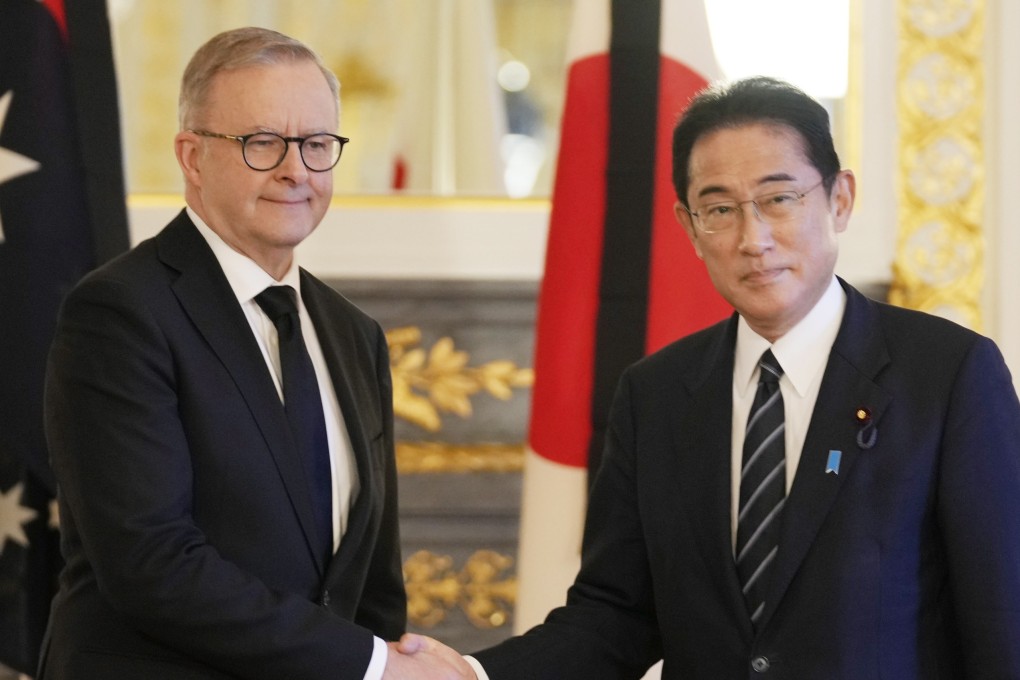Advertisement
Japan and Australia to share intelligence on ‘China’s intentions’ in new security pact
- New security declaration will deepen bilateral partnership and strengthen collaboration with other Quad partners, the US and India, analysts said
- Prime ministers of Australia and Japan are also expected to discuss energy cooperation and security of food supplies during Saturday’s summit in Perth
Reading Time:4 minutes
Why you can trust SCMP
35

When the prime ministers of Australia and Japan meet in a summit to be held in Perth on Saturday, they are expected to sign a new security declaration in response to Beijing’s growing regional assertiveness and increasing military might.
The new Joint Declaration on Security Cooperation will not only deepen the special strategic partnership between the nations and expand security cooperation, it will also strengthen collaboration with other Quad partners, the United States and India, analysts said.
When Anthony Albanese and Fumio Kishida met in Tokyo earlier this year, the leaders said their countries were working to update a landmark pact signed in 2007.
Advertisement
The new declaration will work to complement the new Japan-Australia Reciprocal Access Agreement, according to the ABC, which is an agreement designed to facilitate joint training and strengthening interoperability.
Speaking to the Guardian Australia this week, Japan’s envoy in Canberra Shingo Yamagami said the two nations would share intelligence assessments about China’s military build-up and intentions as part of the new pact.
Advertisement
Advertisement
Select Voice
Select Speed
1.00x